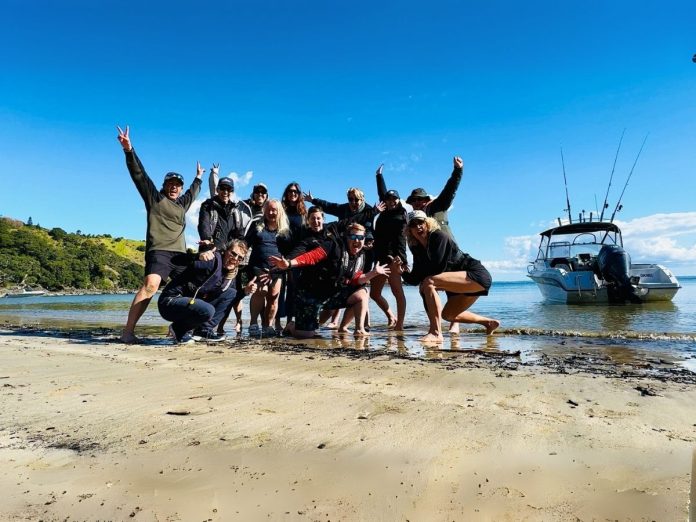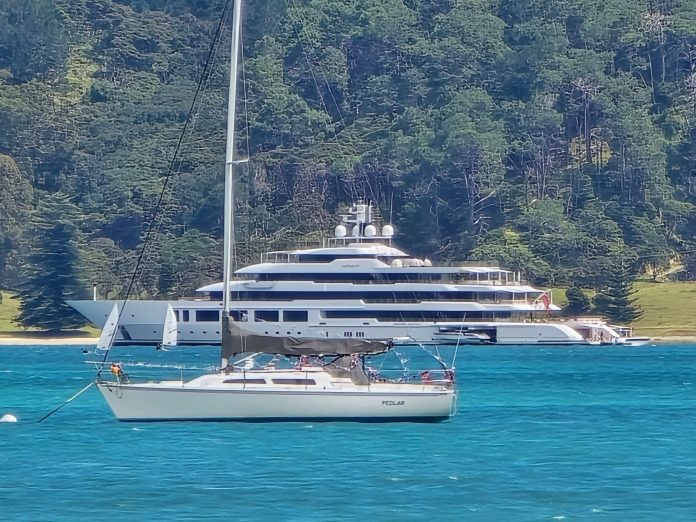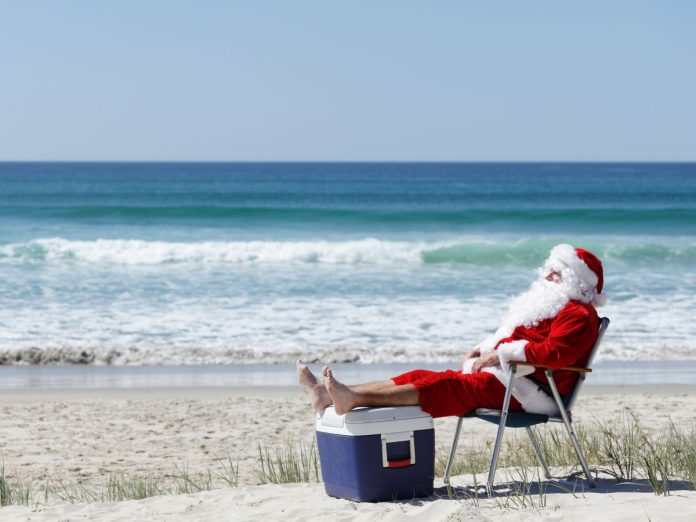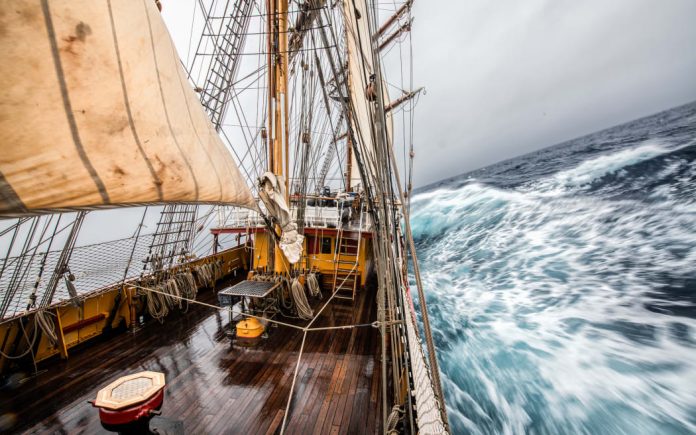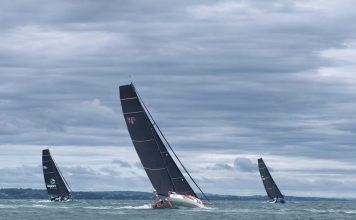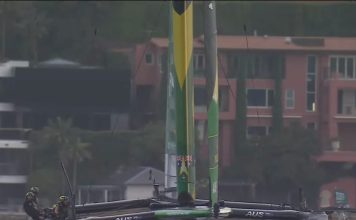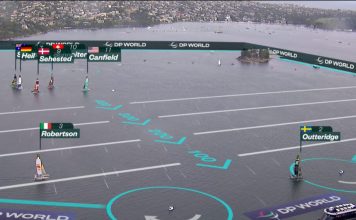Last Friday (22 August) I set my alarm for an ungodly hour. By 4:10am I was on the road from Cambridge, heading north to Auckland’s Westhaven Marina. My destination was Z Pier, home to part of Skipperi’s fleet of Haines Hunter SF545s, and the base for a Wild Chix “Women’s Day Out on the Water”.
I arrived well before dawn (reminding myself if I’d started out later I’d probably be running late). By 8am, the first of the group appeared on the pier. Smiles, hugs, and introductions followed: “so lovely to meet you”, “where are you from?” The atmosphere was instantly relaxed and chatty. No blokes, no pressure — just women keen to give boating a go.
This was my first Wild Chix event, and I was here to see what the buzz was all about: women teaching women, confidence through hands-on learning, and a community approach to boating.
Meeting the crew
It wasn’t long before I met Isabell Zitzelsberger, founder of Wild Chix. Despite only chatting online before, she greeted me like an old friend. Alongside her were familiar faces from the Wild Chix team: Shanel Honore, and chef Katie Bachman. Also joining us was Sarah Psaila from SARS and Coastguard Education, who works on children’s boating safety. Her presence made perfect sense — Wild Chix is a direct link to mothers who want safe, capable boating experiences for their families.
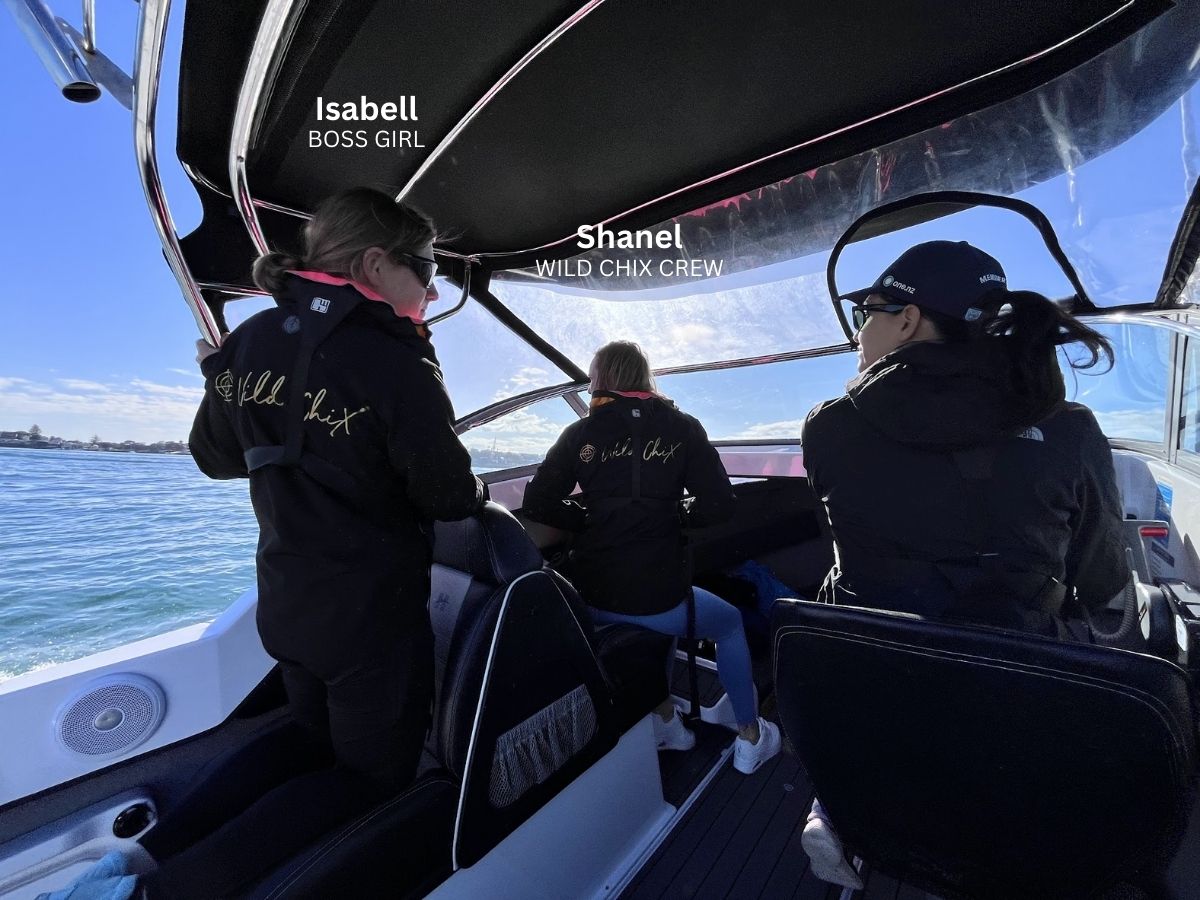
In total there were 12 of us, spread across three boats. A few late cancellations meant we were a tighter group than planned, but that only made the day more personal.
My boat included Isabell, Shanel, and Danielle, a mum of young children whose family were considering joining a boat club. She wanted to build her confidence before stepping into boating life with her husband and kids. Her story echoed why Wild Chix exists — to give women the tools and courage to take the helm.
Getting underway
Before leaving the dock, we covered health and safety: lifejackets, gear checks, and how each boat system worked. Then came a run-through on rods and tackle. Fishing was on the agenda later, and we’d be ready.
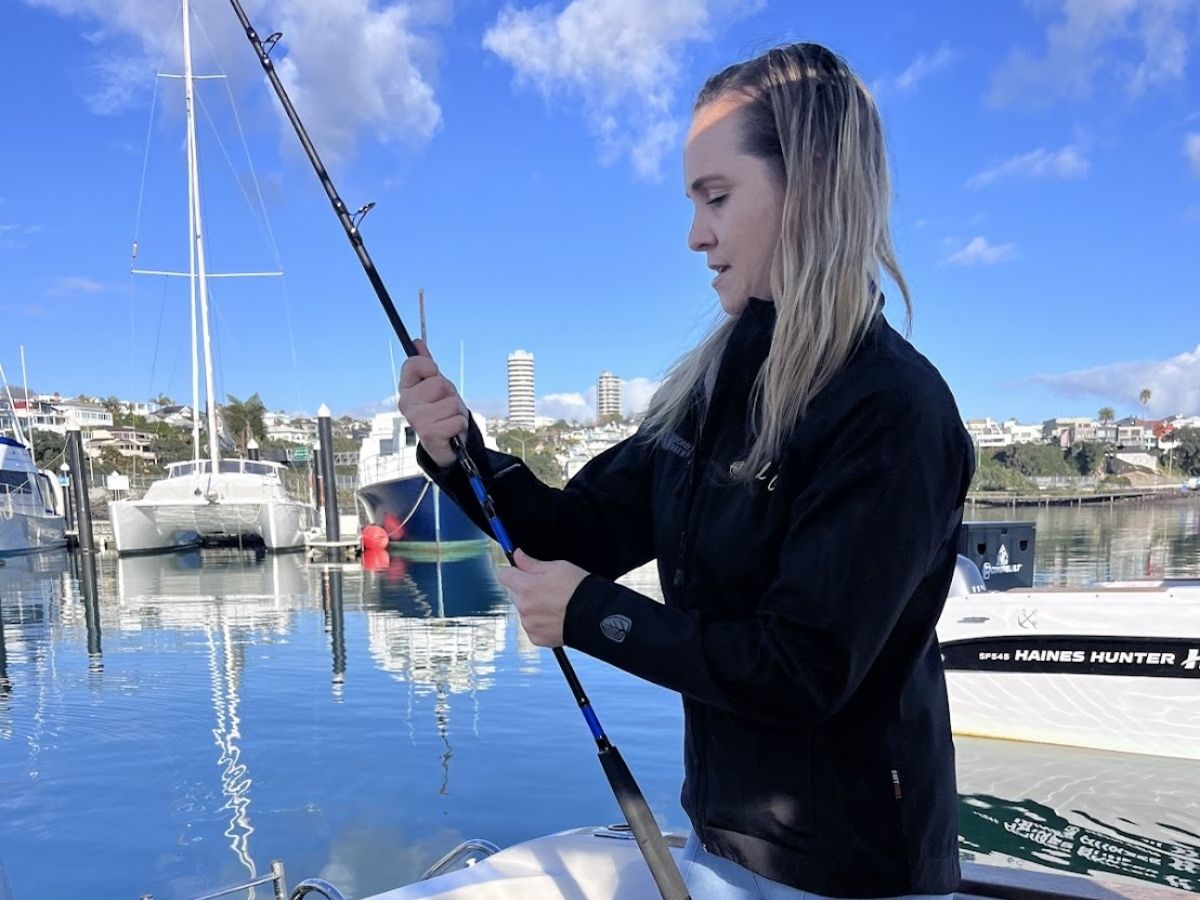
Once lines were slipped, the Haines Hunter SF545s idled out of the marina. These boats couldn’t have been better suited to the purpose. Small enough to feel approachable, but stable, capable, and easy to learn on. The Wild Chix skippers explained trimming the outboard, speed limits, right of way rules, and even how Skipperi’s geofencing works. Push too far, too fast, and the system warns you.
Soon it was our turn. One by one, we each took the helm. Start slow, learn to trim, build speed, and steer. Try once, then watch the next person, then try again. No judgement, just encouragement. By the time we cleared Rangitoto and pointed towards Rakino, the women were driving with confidence.
Fishing and first skills
At Rakino Channel the rods came out. Some had soft bait, some live bait, and others experimental lures. Every boat caught snapper, and while I didn’t land one myself, I learned knots and hooks — and watched others celebrate their first fish from the helm.
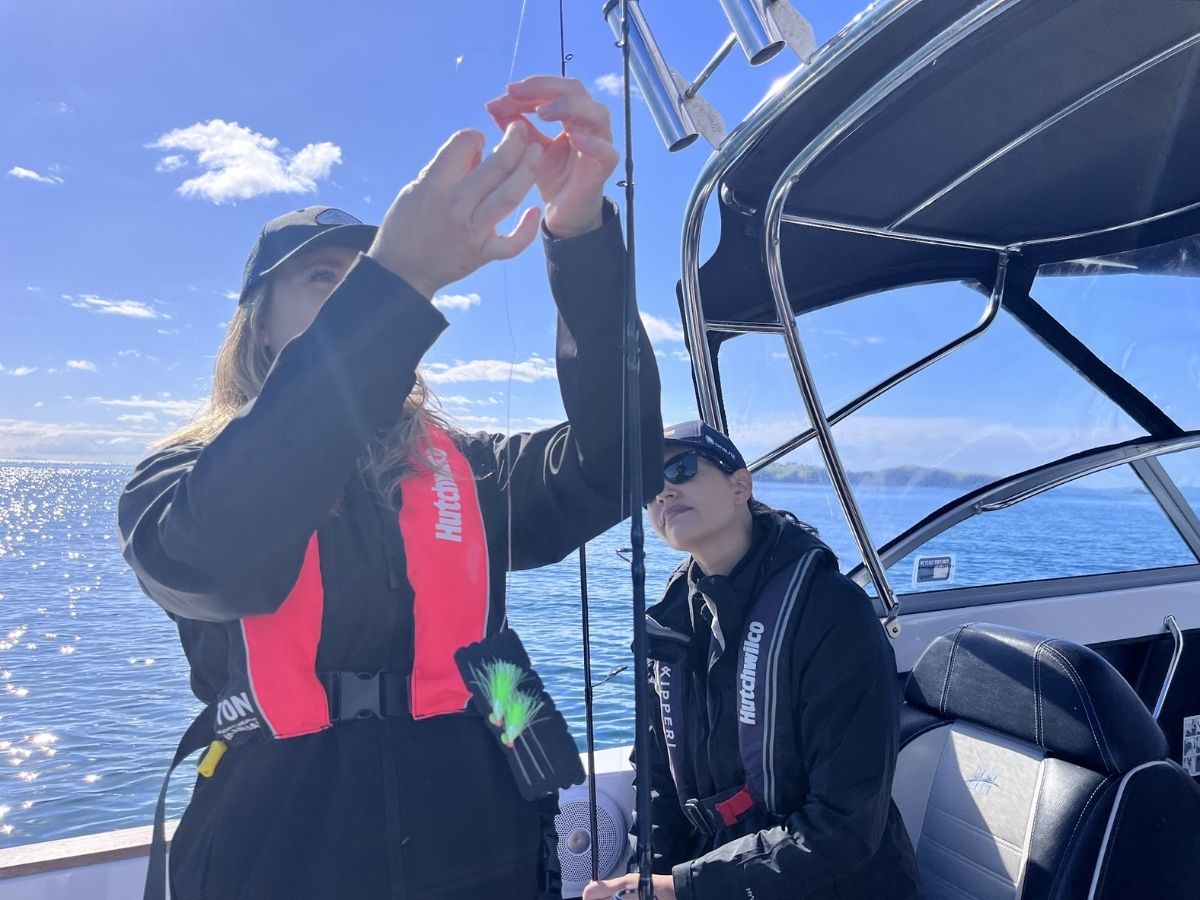
The most striking part wasn’t the fishing itself but the way confidence grew. Guests manoeuvred boats into new spots, adjusting for tide and drift as if they’d been doing it for years.
Picnic on the island
From Rakino Channel we motored into Woody Bay. I had the chance to drive our Haines Hunter right into the anchorage. Compared to my 50-foot yacht, which demands deep water anchoring and tender trips ashore, this felt refreshingly simple. We dropped anchor in the shallows, hopped off into ankle-deep water, and walked straight onto the beach.
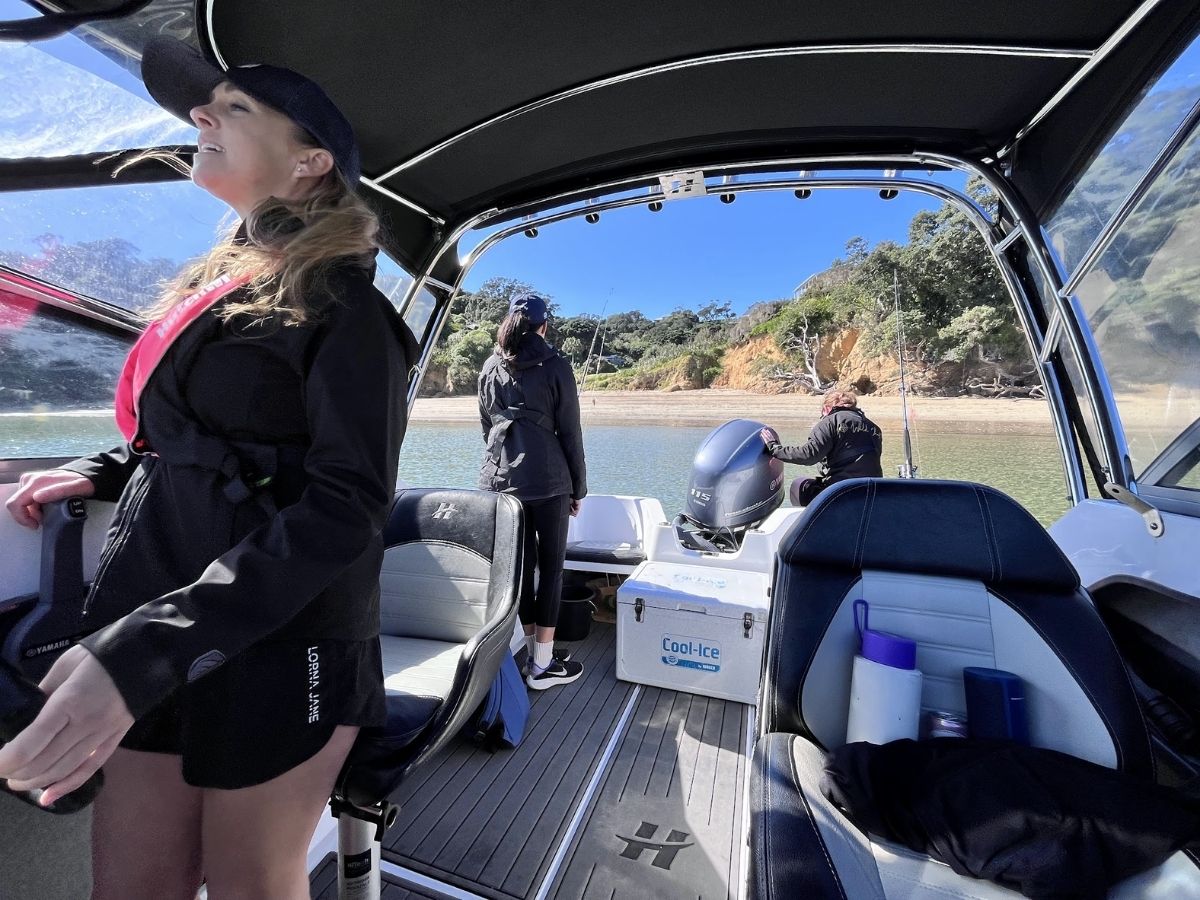
Out came picnic rugs and chilly bins. Wraps with chicken and salad, kebabs fresh from the barbecue, fruit skewers — it was relaxed and wholesome. Sitting in the sand, women who had been strangers hours earlier swapped stories about boating, families, and the day’s learning. Media creators, chefs, educators, mums — the mix was as diverse as it was welcoming.
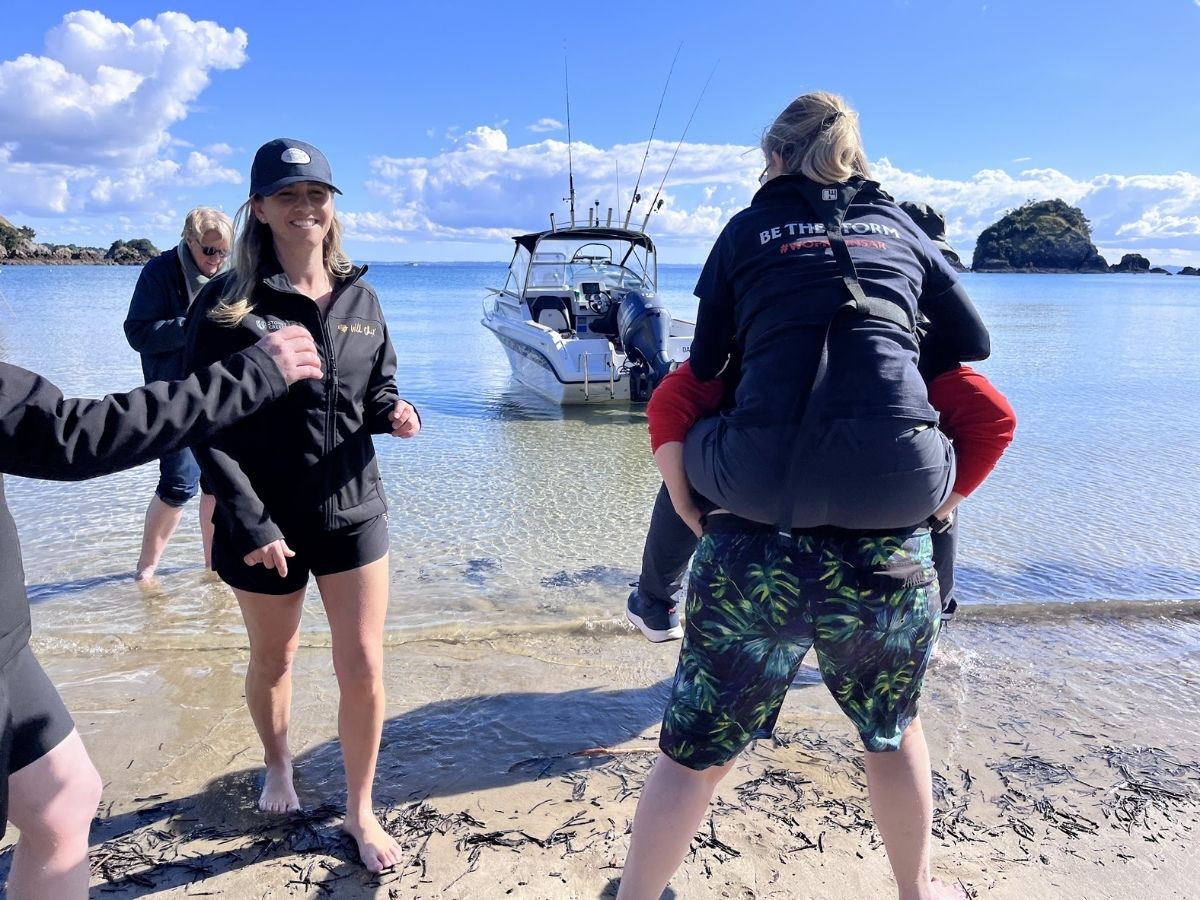
Anchoring and MOB drills
After lunch, Sarah Psaila skippered our boat. Her session focused on anchoring and man overboard (MOB) practice. It was here that the seriousness of boating hit home.
You might think MOB is advanced, something you’ll deal with later. But trying it hands-on showed me how essential it is. The exercise — which way to turn, which side to come up on, how to push close but not too close — instilled a powerful lesson: preparation matters, and knowing what to do could save a life.
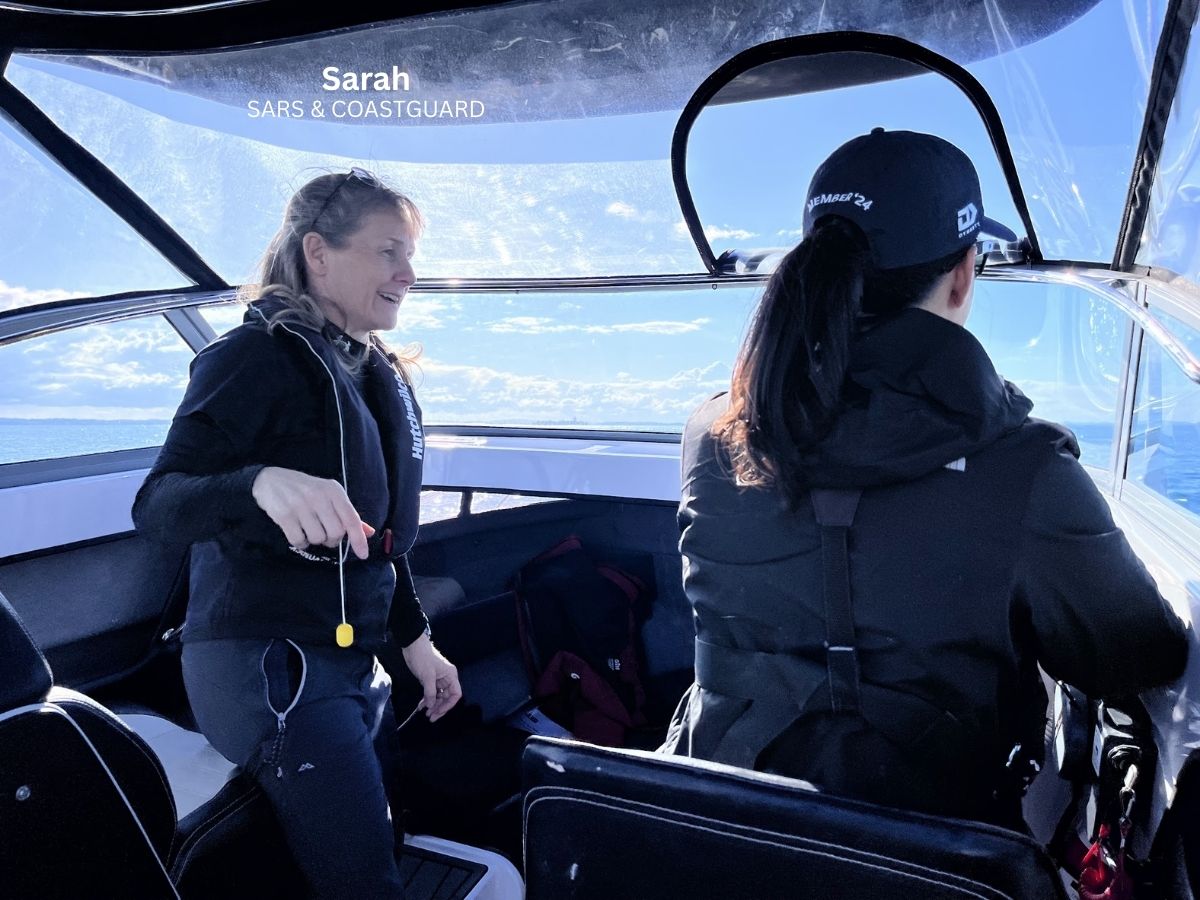
Back to base
By late afternoon we headed back across the Hauraki Gulf, sun dropping low, smiles wide. Boats were washed down, gear packed away, and the group gathered for celebratory drinks.
When I finally pointed the car south for Cambridge, exhaustion hit. But so did a strong sense of satisfaction. I’d learned new skills, connected with inspiring women, and seen first-hand how effective Wild Chix’s approach is.
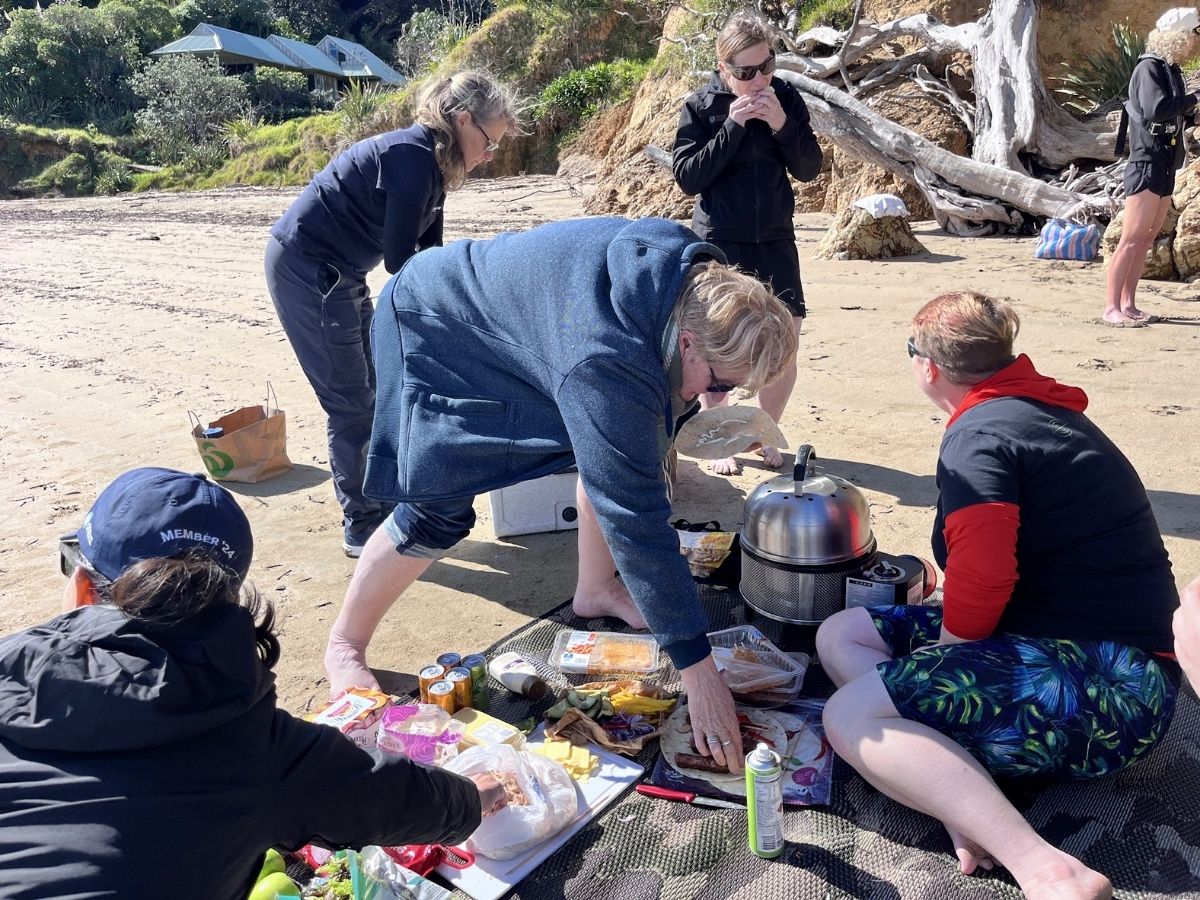
Not too much, not too little
What struck me most was the balance. A little bit of this, a little bit of that — not too deep, never overwhelming. Enough to instil confidence, but never so much information that you felt lost. The Haines Hunters were easy to handle, the instruction encouraging, and the pacing perfect.
Most importantly, it was fun. Fun in a way that makes you want to come back, to learn more, and to share it with others.
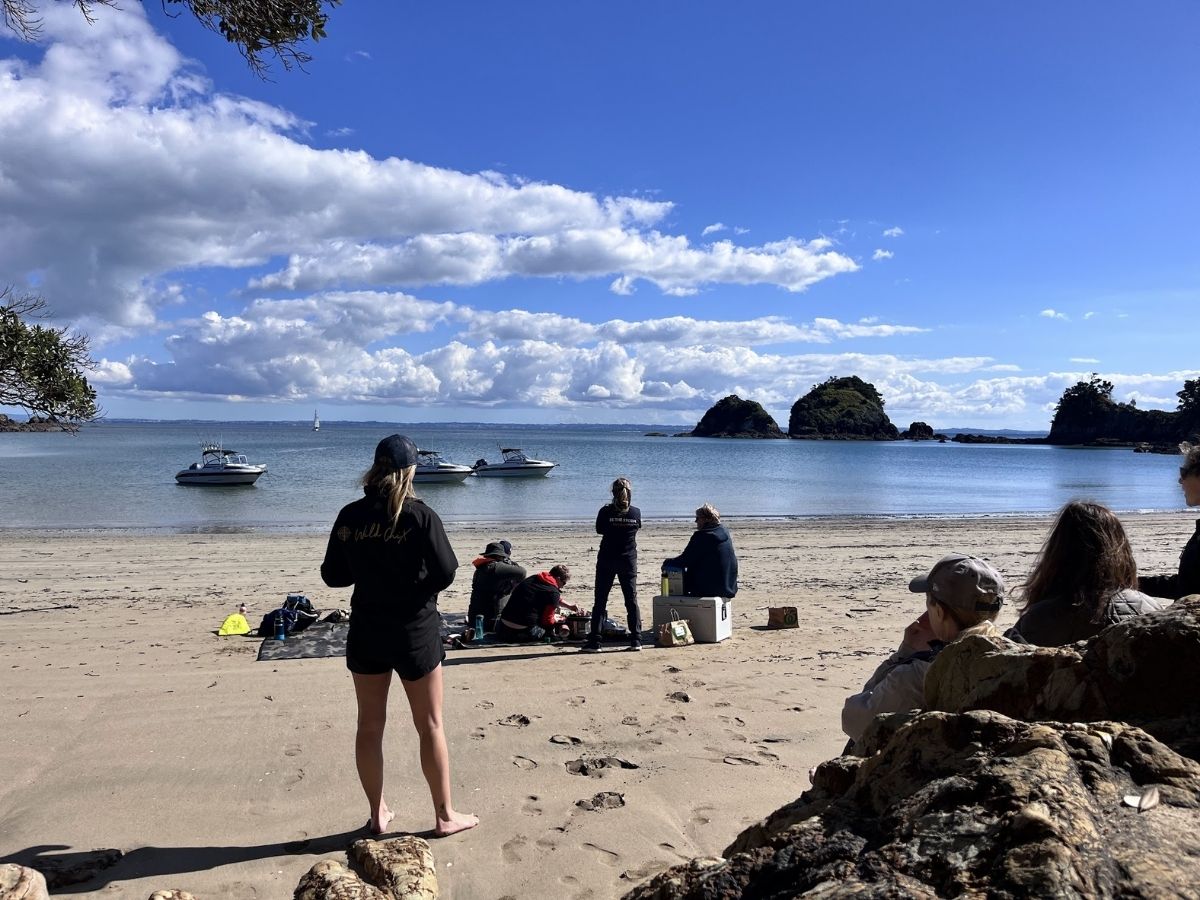
For women hesitant to give it a go, my message is simple: you won’t embarrass yourself. You’ll be supported, encouraged, and probably surprised at just how quickly you can take control of a boat.
The bigger picture
Wild Chix is only two years old, but its impact is already being felt nationwide. Founder Isabell has built something bigger than seminars and training days. She’s created a community that changes how women see themselves on the water.
Partnering with Skipperi — a boat-sharing service that removes the barriers of ownership — is a clever match. It’s not just about skills, but access. Women can learn, practise, and repeat, without needing their own boat.
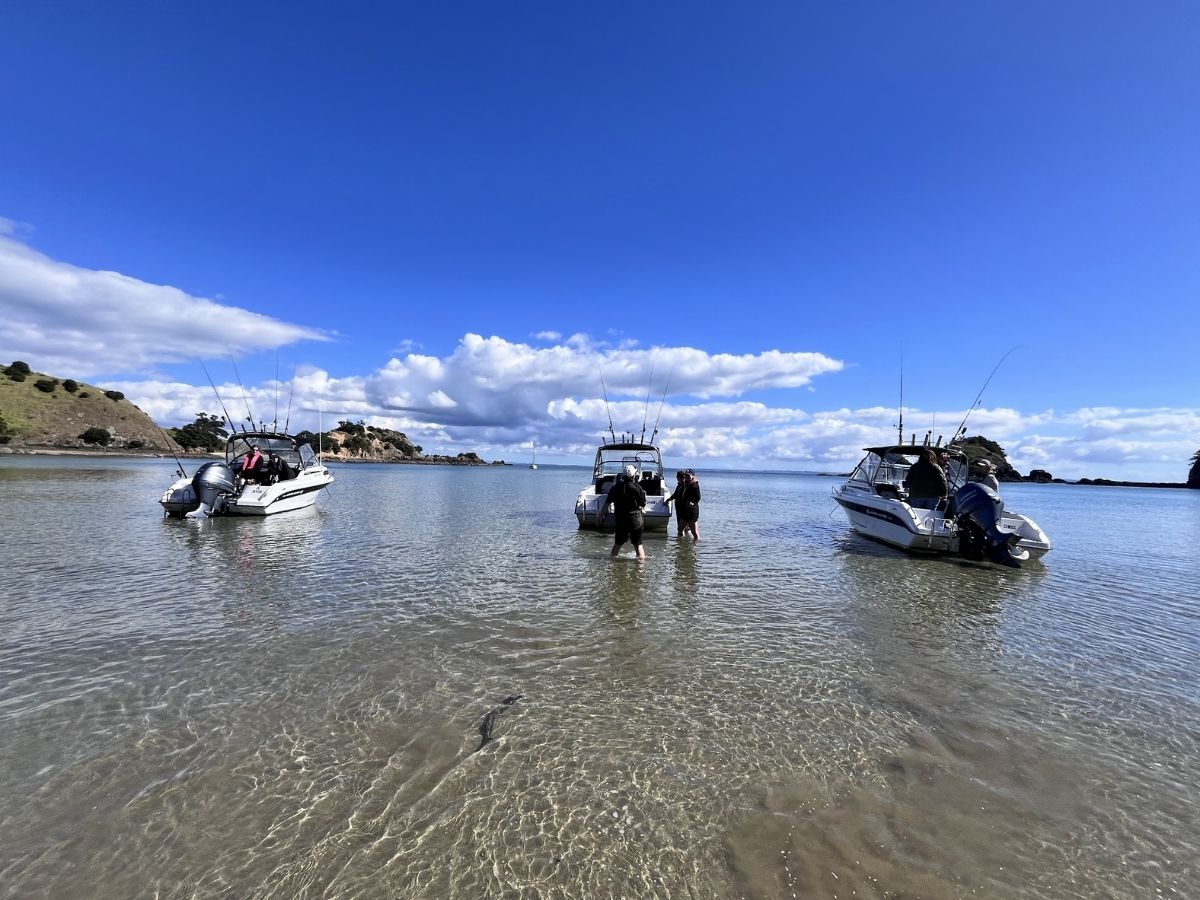
This model, I believe, has the power to shift boating culture in New Zealand. No longer just passengers or helpers, women are increasingly at the helm.
Final thoughts
Would I do it again? Absolutely. The positivity, the skills, and the community left a lasting impression. For a first learning course, I wouldn’t change a thing.
It wasn’t about proving yourself. It was about discovering that you can.
Wild Chix has created a space where women aren’t passengers. They’re skippers, fishers, anchors, leaders. And that’s a change worth celebrating.








